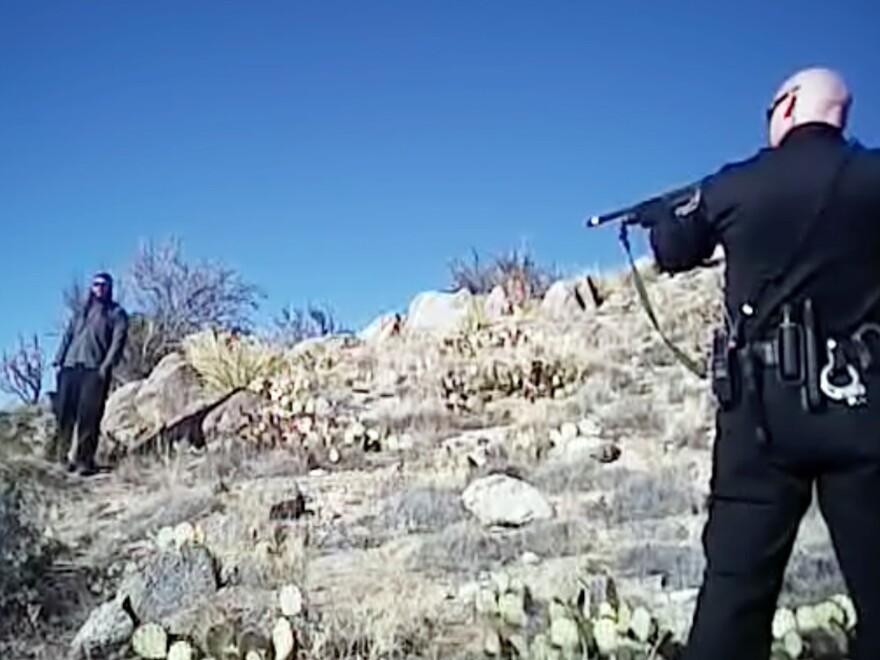The murder trial of two former police officers in the shooting death of a mentally ill homeless man in Albuquerque, N.M., in 2014 has ended without verdicts.
The former officers, Dominique Perez and Keith Sandy, both faced charges of second-degree murder; Sandy was also accused of aggravated battery. After two days of deliberations, the jury considering the murder charges was deadlocked 9-3 for acquittal, according to the Albuquerque Journal. A unanimous jury decision is required in murder cases.
"District Judge Alisa Hadfield declared a mistrial after she polled jurors individually to confirm they believed further deliberations would be futile in deciding whether the officers were guilty of second-degree murder. No vote was taken on a battery charge against Sandy," the newspaper reports.
Special prosecutor Randi McGinn said it will be up to incoming District Attorney Raúl Torrez to decide whether to retry the two in connection with the 2014 shooting death.
The two men were accused of shooting James Boyd, 38, when he was camping in the foothills outside Albuquerque in March 2014. Authorities say Boyd suffered from schizophrenia.
NPR's Kelly McEvers described the encounter this way in her reporting from later that year, after a body camera video was released:
"After an hours-long standoff, Boyd agreed to come down the rocky hill. He grabbed his backpack, then police released a sound grenade, and a dog. Boyd grabbed two pocket knives and swiped at the dog. A police officer yelled for him to get on the ground, and Boyd started to turn away.
"Two officers fired four live rounds. Boyd died. Police released the video to show it was a justified use of force."

The jurors heard 12 days of testimony in the trial, The New York Times reports, and the closing arguments made very different arguments about who was to blame for the shooting. "These officers have suffered the consequences of decisions by elected official to not allocate sufficient resources for the mentally ill," defense attorney Sam Bregman was quoted as saying by the Times.
But special prosecutor Randi McGinn argued that such "anticipatory shootings" were not justifiable. "Society gives police officers a tremendous amount of power," McGinn said, according to the newspaper. "We give them guns — not just side arms, but long guns — and we give them a license to kill. But it is a limited license."
When the shooting occurred, Albuquerque's police department was under investigation by the U.S. Justice Department over its use of force. In April 2014, Justice identified a pattern of excessive force by officers in the city.
In the resulting agreement between the city and the Justice Department, which went into effect in late 2014, the city agreed to 277 reforms, including to "ensure that officers use non-force techniques to effectively police, use force only when objectively reasonable under the circumstances, and de-escalate the use of force at the earliest possible moment."
NPR's Nathan Rott reported that, as of April, the independent monitor appointed to enforce the agreement said the police department had achieved "operational compliance" on just eight of 277 required reforms. Under the current timeline, the Albuquerque Police Department has until mid-November to be in substantial compliance with the settlement agreement.
Copyright 2021 NPR. To see more, visit https://www.npr.org. 9(MDAxODc1ODA5MDEyMjg1MDYxNTFiZTgwZg004))



